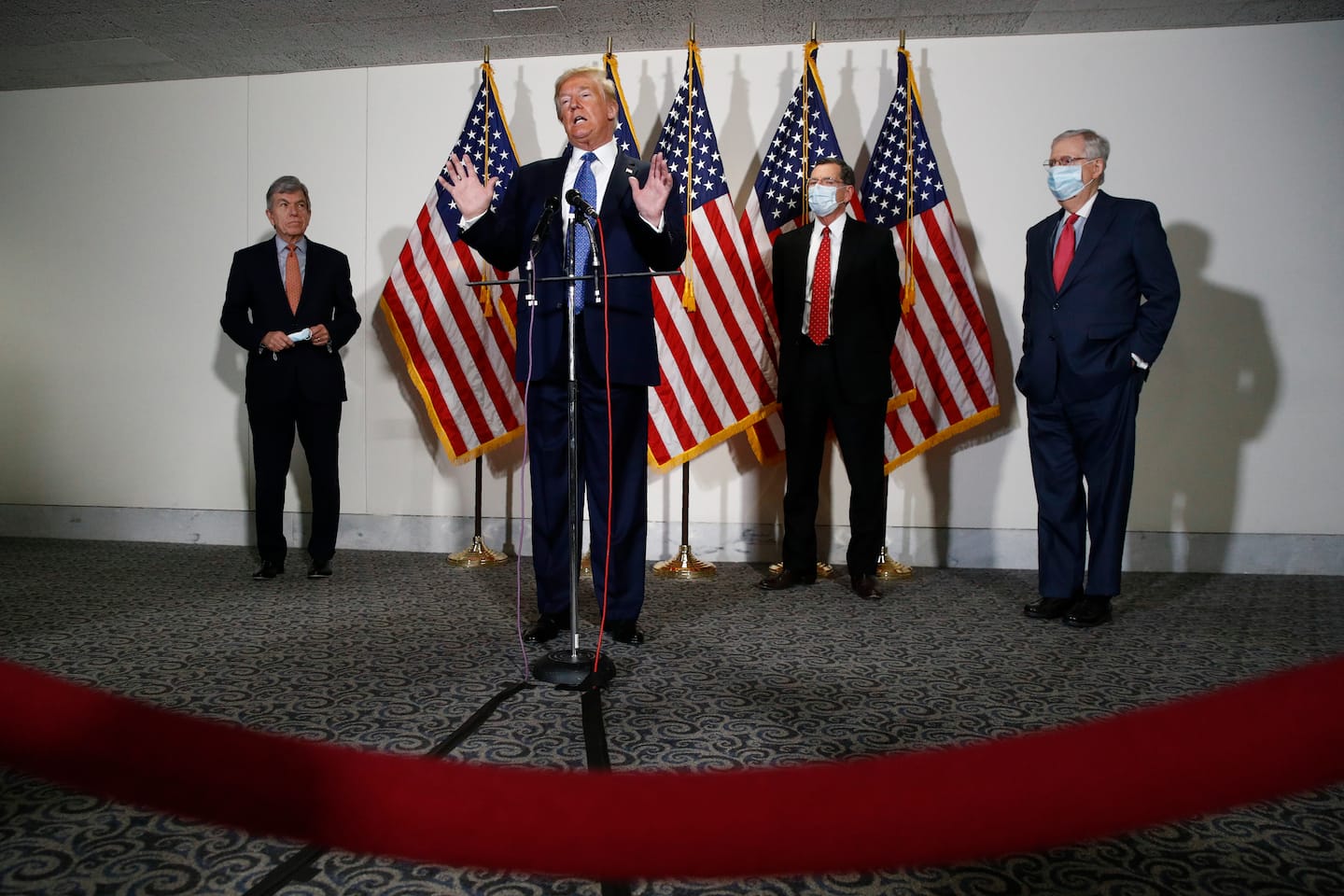How Republican senators are explaining their years of previous fealty to Trump

“We should have done more to push back, both against his rhetoric and some of the things he did legislatively,” one Republican senator told the Hill on the condition of anonymity.
Uh, yeah, say longtime Republican critics of Trump. “What took so long,” asks former Republican National Committee official Douglas Heye in a CNN op-ed, “when all of this was so predictable? Trump has incited violence and sown division since he declared his candidacy in 2015.”
So how are these remorseful senators defending what some now say was the wrong move, to stand by Trump for so long?
Here’s what they are saying about why they stuck by him for so long. We’ll let you be the judge of what’s a fair defense.
He’s done good things as president: This is the most frequent defense we’ve heard. Trump has been a means to many ends they wanted to reach: a conservative judicial branch, including a very conservative Supreme Court; tax reform; deregulation across the government; weakening Obamacare.
“I think the judges he has nominated have been outstanding choices,” Sen. Lindsey O. Graham (R-S.C.) said Thursday, when reporters asked him asked why he stuck by a president from whom he’s now separating himself. ” … I think what he did to destroy the caliphate was long overdue. It makes us safer. I think getting out of the Iran nuclear agreement has led the way to peace between the Arabs and the Israelis at a level I would never have imagined. I think he’s brought order to the border. He listened to me.”
He’s a vote-getter: The Senate majority — and whether Republicans could block Democrats’ governing majority — hung in the balance the same week that Congress was going to confirm President-elect Joe Biden’s win. The two Republican Senate candidates had gone all in on Trump and his false election fraud claims. Trump held a rally in Georgia on Monday, the eve of the election and two days before the riot at the Capitol. Sen. Kelly Loeffler (R-Ga.) joined him there, and announced that she’d be challenging Trump’s electoral college loss in her state despite there being no evidence or legal basis to do so.
“The Republican leadership explained repeatedly that we’d need Trump to help get votes out,” that anonymous GOP senator told the Hill about Georgia.
Left unsaid in this defense, of course, is that Trump also helped remake the Republican Party in ways party leaders couldn’t imagine, in ways that seemed fantastic at first. He was the first Republican in 30 years to win Wisconsin in the 2016 elections. He flipped Michigan and the all-important Pennsylvania. He helped boost turnout in 2020 down the ballot that stopped a blue wave in its tracks.
Holding their tongues on Georgia didn’t work. Republican turnout in the runoffs dropped across the state compared to November, when Trump was on the ballot, too.
After the mob forced senators and staff into hiding for hours Wednesday, Loeffler emerged with a change in attitude. She addressed her colleagues when the Senate reconvened and said she can’t “in good conscience” challenge the electoral college results. She was one of several GOP senators who reversed their positions.
Democrats (and “the media”) bound them together: Here’s Senate Majority Leader Mitch McConnell (R-Ky.), who gave a speech urging his colleagues to confirm Biden’s win just an hour or so before rioters broke into the Capitol: “We just spent four years condemning Democrats’ shameful attempts on the validity of President Trump’s own election. … The media that is outraged today spent four years aiding and abetting Democrats’ attacks on our institutions after they lost.”
When Trump won, some congressional Democrats said they didn’t think his election was legitimate because of Russian interference. Some objected to his electoral college win in 2016 (though no senators joined in, and not in nearly the numbers that Republicans opposed Biden’s). Many, if not most Republicans, thought impeaching Trump last year for his actions in Ukraine was opportunistic and unnecessary.
Democrats were unceasingly critical of the president — and so, on the whole, was coverage from mainstream media outlets, which covered his near-daily controversies and how he smashed through democratic norms.
But what Republicans don’t acknowledge in this defense is that much of Trump’s drama they themselves privately opposed.
It took a deadly mob invading their place of work and their safety and the democratic process for some of them to say so publicly. And a few acknowledge that it’s too little, too late.






